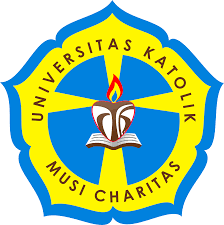UJI ECOPRINT UNTUK TUMBUH KEMBANG WIRAUSAHA DI ERA PANDEMI COVID-19-KELURAHAN SEMBUNGHARJO GENUK
DOI:
https://doi.org/10.32524/jamc.v6i2.532Keywords:
Business Plan, Boiling Technique, Mordanting Technique, Ecoprint TechniqueAbstract
The economic contraction due to the Covid-19 pandemic has caused millions of people to lose their jobs, causing the number of poverty rates to increase. The existence of this situation encourages people to think of ways to earn income by utilizing plants, leaves in the surrounding environment as a form of ecoprint business. This batik model is very environmentally friendly and does not cause water, soil or air pollution. This ecoprint can grow new and independent entrepreneurs by being provided with facilities and skills from creativity and potential in accordance with regional capabilities. The training was carried out in stages, namely the process of handling fabrics with the ngetel (cooking) technique; fabric handling process with mordanting technique; and ecoprint engineering processes. The results of this service activity show that housewives are able to produce fabric products with ecoprint techniques, and produce one community, namely the genuk people's batik studio. Service evaluation is carried out by monitoring the activities of participants after the training and seeing the final results of the fabrics modified by participants according to the expertise of each participant through the formation of a WhatsApp(WA) group.
References
Anggahegari, Yudoko, P., and Rudito, B. (2018). Female Social Entrepreneur Movement In Indonesia. Journal of Entrepreneurship, 315–331.
Erkomaishvili Gulnaz. (2016). Economic Policy Priorities For Development of Georgia.
Koe, Wei-Loon, Roaimah, O., and Sa’ari, J. R. (2015). Factors Influencing Propensity to Sustainable Entrepreneurship of SMEs in Malaysia. Procedia Social and Behavioral Sciences, 172, 570–577. https://doi.org/10.1016/j.sbspro.2015.01.404
Mohamad, M. I. (2020). Memetakan Jalan penguatan Ekonomi Pasca Pandemi. The Indonesian Journal of Development Plannin, IV(2),pp:103–116. https://doi.org/10.33758/mbi.v14i4.342
Purnomo, A., Usman, I., dan Asitah, N. (2019). Entrerpreneurship Research in Indonesia: Publication Mapping With Scientometric Perspective (1972-2019). AdBispreneur: Jurnal Pemikiran Dan Penelitian Administrasi Bisnis Dan Kewirausahaan, 4(3), 207–216.
Sayuti, R. H., dan Hidayati, S. A. (2020). Dampak Pandemi Covid-19 Terhadap Ekonomi Masyarakat di Nusa Tenggara Barat. RESIPROKAL: Jurnal Riset Sosiologi Progresif Aktual, 2(2), 133–150. https://doi.org/10.29303/resiprokal.v2i2.46
Shane, and Venkataraman. (2000). Entrepreneurial Motivation. ILR Collection.
Wennekers, Thurik, A. R., Wildeman, Hofstede, G., Noorderhaven, N. G., and Verhoeven, W. H. J. (1998). Culture’s Role in Entrepreneurship: Self-Employment out of Dissatisfaction. RIBES Paper 9815, Erasmus Universiteit Rotterdam.
Downloads
Published
How to Cite
Issue
Section
License
Copyright (c) 2023 Jurnal Abdimas Musi Charitas

This work is licensed under a Creative Commons Attribution-ShareAlike 4.0 International License.
















_1.png)




